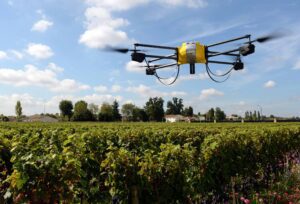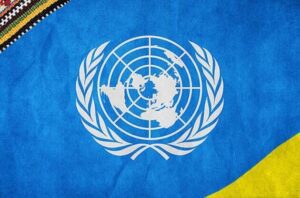
The European Commission will provide an opinion on Ukraine’s possibility of obtaining the status of a candidate member of the EU by the end of June, after which the European Council will be able to start a discussion on this issue, President of the European Council Charles Michel said.
“We will have the opinion of the Commission by the end of June. And it will be my responsibility to assess when I can put this issue on the agenda of the European Council, to make sure that we have a political discussion, a dialogue, to make progress on this path. But I I want to say that I feel very strong support to make sure that we can provide concrete support to Ukraine in your choice to follow the path to the EU in your future,” Michel said at a press conference with Ukrainian President Volodymyr Zelensky in Kyiv on Wednesday.
He stressed that Ukraine demonstrates adherence to democratic principles and freedoms every day.
“You are fighting not only for the future of the children of Ukraine. We know that you are fighting for European fundamental principles and values,” Michel stressed.

The number of pigs of the agricultural holding KSG Agro as of April 1 of this year increased by 1% (0.51 thousand heads) compared to a month earlier, from 54.02 thousand heads to 54.53 thousand heads, then as the sale of live pigs by him increased by 3%, from 6.08 thousand to 6.25 thousand heads, according to a press release from the group on Wednesday.
“Despite the extremely difficult situation in the country as a result of martial law, characterized by a break in supply chains, we, by creating a stock of feed and updating the number of sows last year, managed to increase the number of pigs and the volume of their sale,” the head of the board of directors said in a statement. KSG Agro Sergey Kasyanov.
According to him, the agricultural holding intends to continue stable work and will gradually increase production indicators, thereby ensuring the food security of Ukraine and helping the Ukrainian armed forces with its products.
As reported, KSG Agro in April began to form a three-month strategic stock of raw materials for fattening pigs at its own feed mill to ensure the uninterrupted operation of its pig farm in the context of the Russian military invasion of Ukraine.
The vertically integrated holding KSG Agro is engaged in pig breeding, as well as the production, storage, processing and sale of grains and oilseeds. Its land bank is about 21 thousand hectares in the Dnepropetrovsk and Kherson regions.
According to the agricultural holding itself, it is among the top 5 pork producers in Ukraine.
KSG Agro in 2020 reduced net profit by 3.2 times compared to 2019 – to $1.27 million, revenue – by 11%, to $21.34 million, while increasing EBITDA by 2.9 times – to $6, 02 million

An agricultural enterprise from the Kiev region has carried out the application of plant protection products (PPP) on 130 hectares of berry plantations using agricultural drones – unmanned aerial vehicles, this innovative technique has been used for the introduction of PPP in Ukraine for the first time, the Ministry of Agrarian Policy and Food of Ukraine reported on Facebook on Wednesday.
According to him, land cultivation by drones is more efficient than traditional wheeled vehicles due to the fuel efficiency of drones and their ability to apply fertilizers more efficiently and precisely. This is especially important given the disruption of supply chains due to Russia’s military intervention in Ukraine.
At the same time, the agency in the message did not name the company that applied the application of plant protection products using drones.
The Ministry of Agrarian Policy emphasized that for the duration of martial law, drone owners must obtain permission to fly and coordinate the use of airspace for agricultural needs with military units located in the region. Otherwise, any uncoordinated actions will be instantly regarded as hostile, and the unmanned vehicles will be neutralized by the Armed Forces of Ukraine.
“We are convinced that in the future the process of applying PPPs by drones will be easier and more accessible. Now there is already an algorithm for cooperation with military administrations, the Armed Forces of Ukraine and documentary support,” First Deputy Minister of Agrarian Policy Taras Vysotsky quotes the ministry.

Civilian casualties from February 24, when Russia started the war against Ukraine, to 24:00 on April 19 amounted to 5,121 civilians (4,966 in the report a day earlier), including 2,224 dead (2,104), reports the Office of the High Commissioner UN Human Rights on Tuesday.
The daily summary traditionally states that the increase in figures from the previous summary should not be attributed only to the cases that occurred on April 19, since during the day OHCHR also verified a number of cases that occurred in previous days, however, the increase in the number of deaths is the second largest the largest during the entire war.
“OHCHR believes that the actual figures are much higher as information is delayed from some areas of heavy fighting and many reports are still awaiting confirmation,” the UN data document notes.
According to him, this applies, for example, to Mariupol (Donetsk region), Izyum (Kharkiv region), Popasna (Luhansk region) and Borodianka (Kyiv region), where there are reports of numerous civilian casualties. They are subject to further verification and are not included in the above statistics.
“The majority of civilian deaths or injuries were caused by the use of explosive devices with a wide area of effect, including shelling from heavy artillery and multiple launch rocket systems, as well as rocket and air strikes,” the report says.
According to confirmed UN data, 631 men, 383 women, 61 boys and 42 girls died, while the sex of 70 children and 1037 adults has not yet been determined.
Among the 2,897 injured were 59 girls and 64 boys, as well as 157 children whose gender has not yet been determined.
Compared to the previous day, according to the UN, three children were killed and three more were injured.
OHCHR indicates that in Donetsk and Luhansk regions, as of midnight on April 20, there were 746 (660) dead and 1,078 (1,070) injured in government-controlled territory, and 79 (79) dead and 325 (320) injured in territory controlled by self-proclaimed “republics”.
In other regions of Ukraine under government control (in Kyiv, as well as in Zhytomyr, Zaporozhye, Kiev, Sumy, Odessa, Mykolaiv, Kharkiv, Kherson, Dnepropetrovsk, Cherkasy and Chernihiv regions), the UN recorded 1399 (1365) dead and 1494 (1472) wounded .
The report also states that, according to the Office of the Prosecutor General of Ukraine, as of 8:00 am on April 20, 205 (205) children were killed, 373 (367) were injured.

German Foreign Minister Annalena Burbock said that Germany will gradually stop buying Russian energy resources, in particular, by the end of the year it will completely stop importing Russian oil.
“Security in Europe means that we reduce and stop our dependence on Russia, primarily in energy policy. We want to stop importing Russian gas, better today than tomorrow,” Burbock said on Wednesday, she is on a trip to Latvia and the press conference was broadcast by the German TV channel Welt.
According to the minister, Germany “made mistakes” in the past, so now it is necessary to stop importing energy carriers from Russia.
“From coal imports to the end of summer, we will halve oil imports by summer and bring them to zero by the end of the year,” Burbock said.